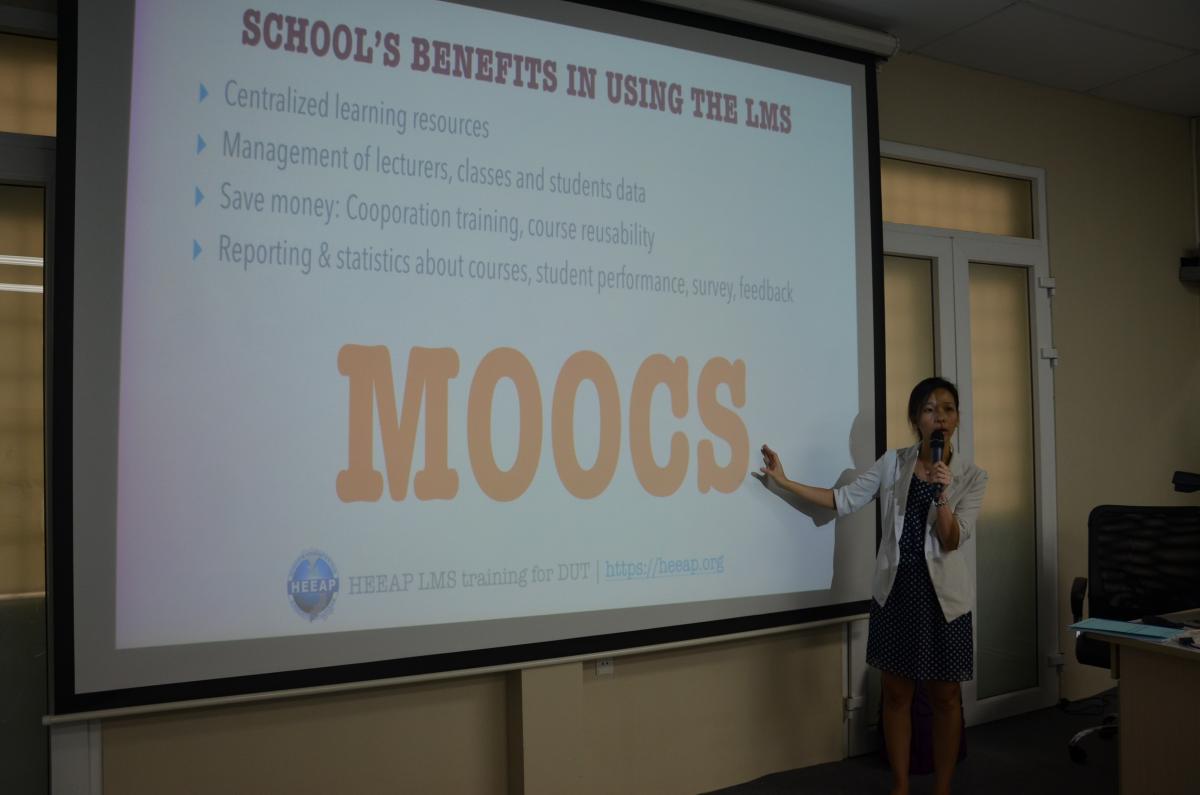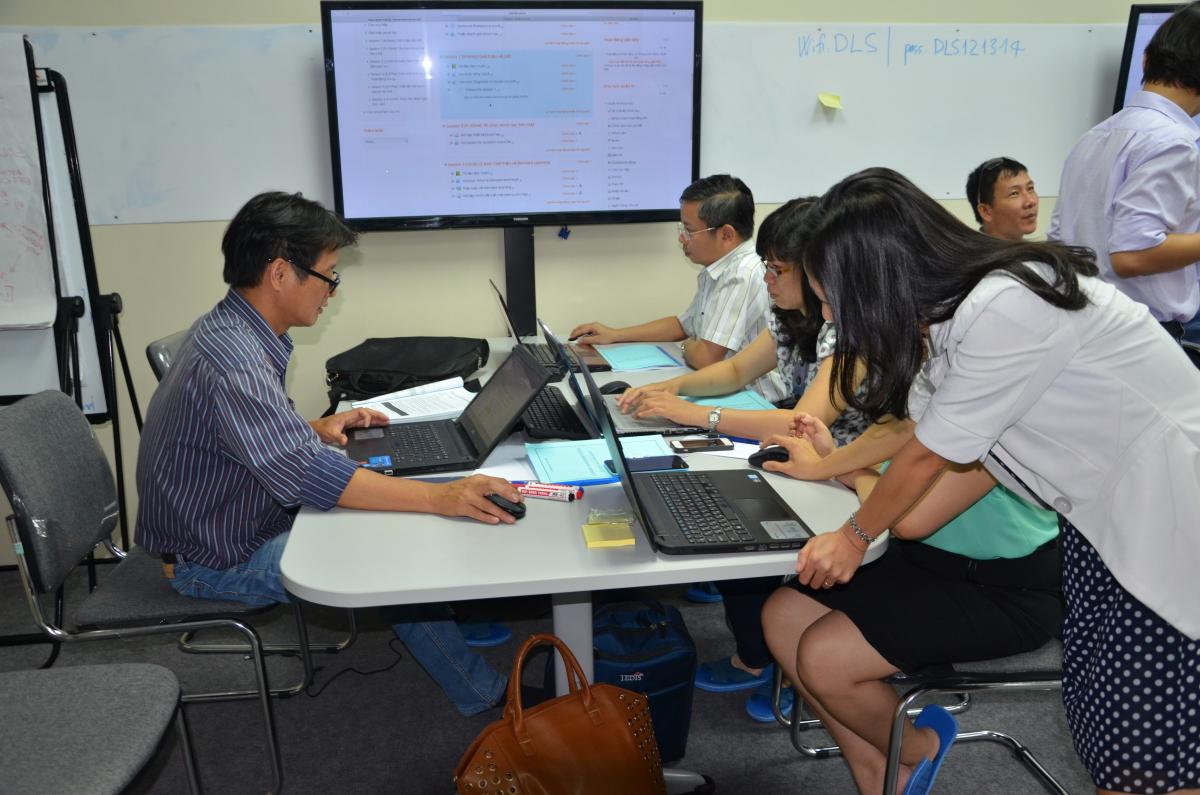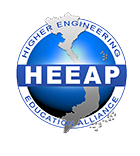HEEAP designed a one-day workshop for the University of Danang - University of Science and Technology (UD-DUT) that focused on training faculty to leverage Learning Management Systems (LMS) for blended learning and teaching. The workshop, which took place on September 16, 2016, was facilitated by ASU’s instructional designer, Cristal Ngo, and supported by four UD-DUT professors who completed a six-week training at ASU as a part of the HEEAP University Cohort in July 2016. More than 30 faculty members who teach in UD-DUT’s Advanced Programs participated in the workshop, which was organized by UD-DUT’s Center of Excellence at the Digital Learning Studio that was funded by Intel in 2014.

ASU Instructional Designer, Cristal Ngo Minh Ngoc, introducing LMS and its benefits in teaching and learning to UD-DUT faculty.
The first part of the day took participants through the planning, design and implementation process of creating a blended course. Afterwards they participate in a real-life blended format course, and concluded with a chance to create their own blended courses on UD-DUT’s LMS.
Throughout the workshop, faculty were able to experience some of the benefits LMS offers, including: creating and designing blended learning courses, managing teaching materials easily, monitoring students’ progress and performance, personalizing learning for students, and providing more options for students to learn from wherever they are.

UD-DUT faculty designing their own blended courses with support from ASU’s instructional designer.
The training exercises were designed to highlight the importance of pedagogy and the design of learning activities. Various blended models and activities were introduced to give faculty new ideas for the redesign of their own courses including: face-to-face learning, online learning, readiness assessment tests (RAT) and class response systems like Kahoot and Socrative.
By the end of the training, more than half of the participants successfully designed and created their own courses on the school’s LMS. Most of the faculty in attendance aim to complete the LMS course development to be used in their classes during the 2016-2017 academic year.
Several faculty members stated that the workshop greatly helped in increasing their skill and comfort level with LMS and its application in blended learning. Most importantly, the participants realized the potential and benefits of moving toward an instructional approach that not only incorporates educational technologies, but also increases student learning, motivation and engagement.
By CRISTAL NGO, September 27, 2016

